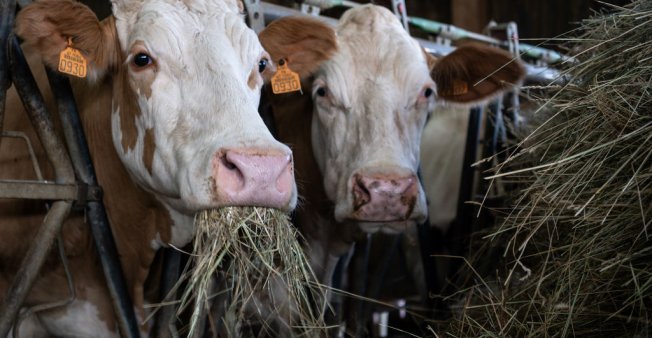The Enugu State Government has urged its residents not to panic as the Ministry for Agriculture and Rural Development is on alert and proactive to prevent anthrax outbreak in the state.
Dr Cosmas Omeh, State Epidemiologist and Disease Reporting Officer in the Ministry’s Veterinary Services Department, made the call in an interview with the News Agency of Nigeria (NAN) on Thursday in Enugu.
Anthrax is a zoonotic disease caused by a spore-forming bacterium, which mainly affects animals.
Human beings can become infected with anthrax through contact with an infected animal alive or dead as well as by inhaling spores.
The symptoms of anthrax can range from a skin ulcer with a dark scab to difficulty breathing. However, antibiotic treatment cures most infections. Inhaled anthrax is harder to treat and can be fatal.
Omeh said: “residents should not panic. The veterinary Services Department is alert and proactive to protect the health of all by daily ensuring disease-free, fit and wholesome meat for human consumption in all markets.
”Area Veterinary Officers and Surveillance Officers at the Zonal and LGAs, have been the mandated to watch out for the clinical signs/ symptoms of anthrax daily,” he said.
The state epidemiologist noted that the clinical signs/ symptoms of anthrax included: sudden death, bleeding from the orifices such as mouth, nose, ear and anus, rapid bloating, absence of rigor mortis, swelling from the face and neck of an animal.
He said that vet doctors are to report any irregularities immediately through the appropriate channel, knowing full well the implications of anthrax as a zoonotic and reportable disease in veterinary medicine.
“Our veterinary officers and area vet officers are already sensitising the stakeholders in the animal business which includes animal handlers, butchers, livestock owners and merchants, on the dangers of concealing information or even coming in contact with affected animals.
“We have warned handlers of meat to wear protective materials and maintain optimal personal and business place hygiene as well as ensure that carcasses of animals which have died from, or are suspected to have died from Anthrax, must not be opened.
“They should ensure immediate notification of suspected disease through competent authority (Veterinary Services staff or the nearest Veterinarian).
”Milk, meat, wool, hair, hides and skin from animals showing clinical signs should not be removed from the carcass but disposed of following standard operating procedures.
”They should seek medical advice if any of the following occur: if a person feels unwell following handling of suspected or infected carcass or animal; or exposure without appropriate personal protective equipment to suspected or infected animal,” he said.




